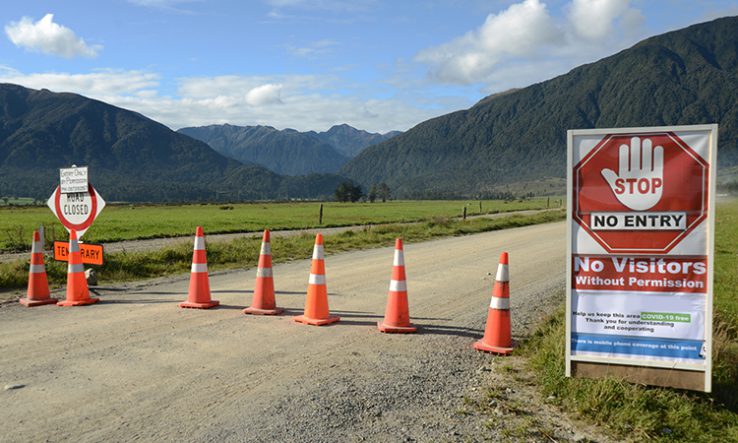
Countries pursuing elimination have experienced less disruption and economic damage, New Zealand professors say
Elimination of Covid-19 is still a feasible goal, according to two leading New Zealand health researchers.
In an editorial published in the British Medical Journal on 15 July, David Skegg and Philip Hill say that “many confuse elimination with eradication”, and that the goal of practical elimination of the virus is worthwhile.
“Countries pursuing an elimination strategy have experienced less disruption and economic damage than those that have focused on mitigation to protect health services,” they say.
Skegg is an emeritus professor in the University of Otago’s department of preventive and social medicine, and a member of the oversight panel for the Covid-19 Scenarios Project of the International Science Council. Hill is a professor of international health at Otago and a member of New Zealand’s Strategic Covid-19 Public Health Advisory Group, which Skegg chairs.
They say that “elimination” can be defined as a very low level of cases, with no transmission, in line with New Zealand’s response. For example, “a World Health Organization definition for the elimination of measles in a country allows for importation of cases, as long as endemic transmission of the measles virus strain does not continue for more than 12 months. So far, there is no internationally agreed definition for the elimination of Sars-Cov-2.”
‘Realistic definition needed’
In the editorial, the pair urge the World Health Organization’s Independent Panel for Pandemic Preparedness and Response to “set out and promote a realistic definition of elimination in the context of Sars-Cov-2. This would encourage ambition, rather than defeatism, in confronting the coronavirus causing such havoc around the globe.”
The WHO should “develop a roadmap to guide efforts towards ending the Covid-19 pandemic within countries and globally”, they write, with reference to an IPPPR report entitled Make It the Last Pandemic, which calls for structural changes internationally to respond to both Covid-19 and future pandemics. The IPPPR is co-chaired by former New Zealand prime minister Helen Clark.
Skegg told Research Professional News that he did not believe the focus of Covid-19 research in New Zealand had been greatly affected by the national strategy of elimination. People work in their own areas of expertise, whether that is in epidemiology, vaccine development or clinical research, he said. As in many countries, the government has invested in modelling work.
“[It’s true that] research on the treatment of Covid-19 is limited by the dearth of patients—but we can hardly complain about that,” Skegg said.